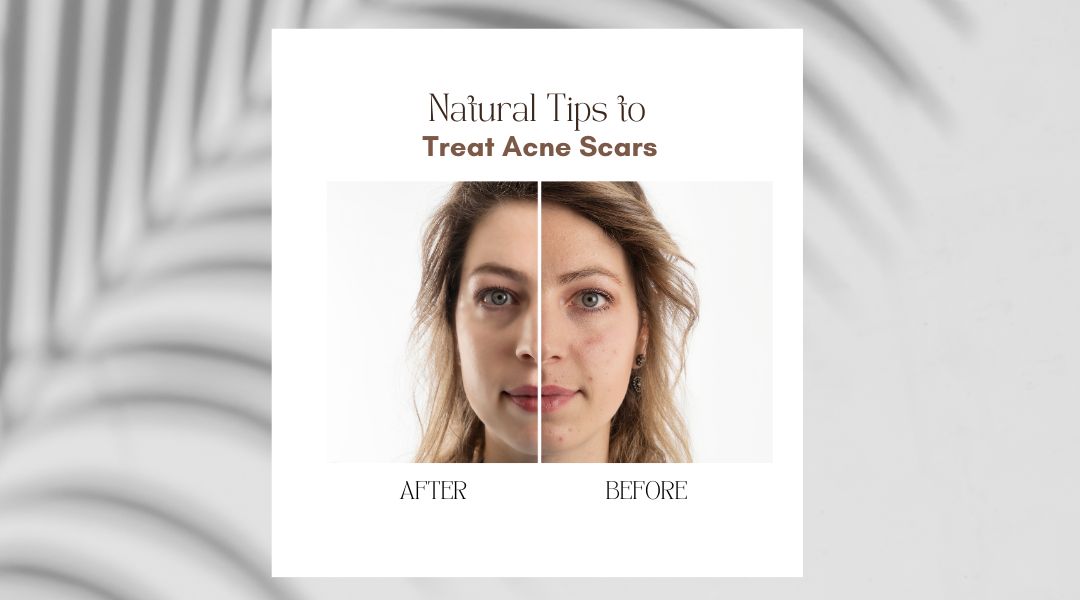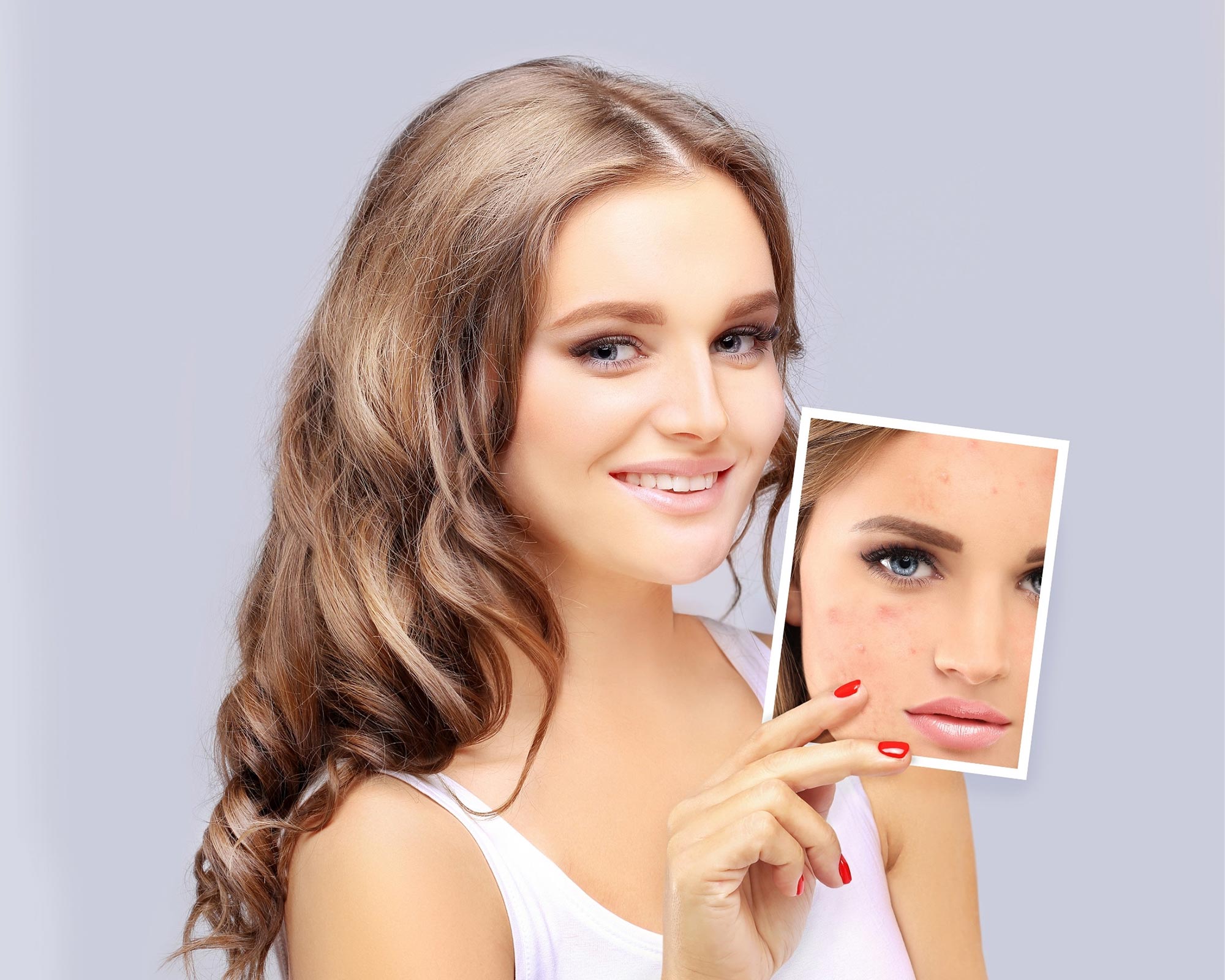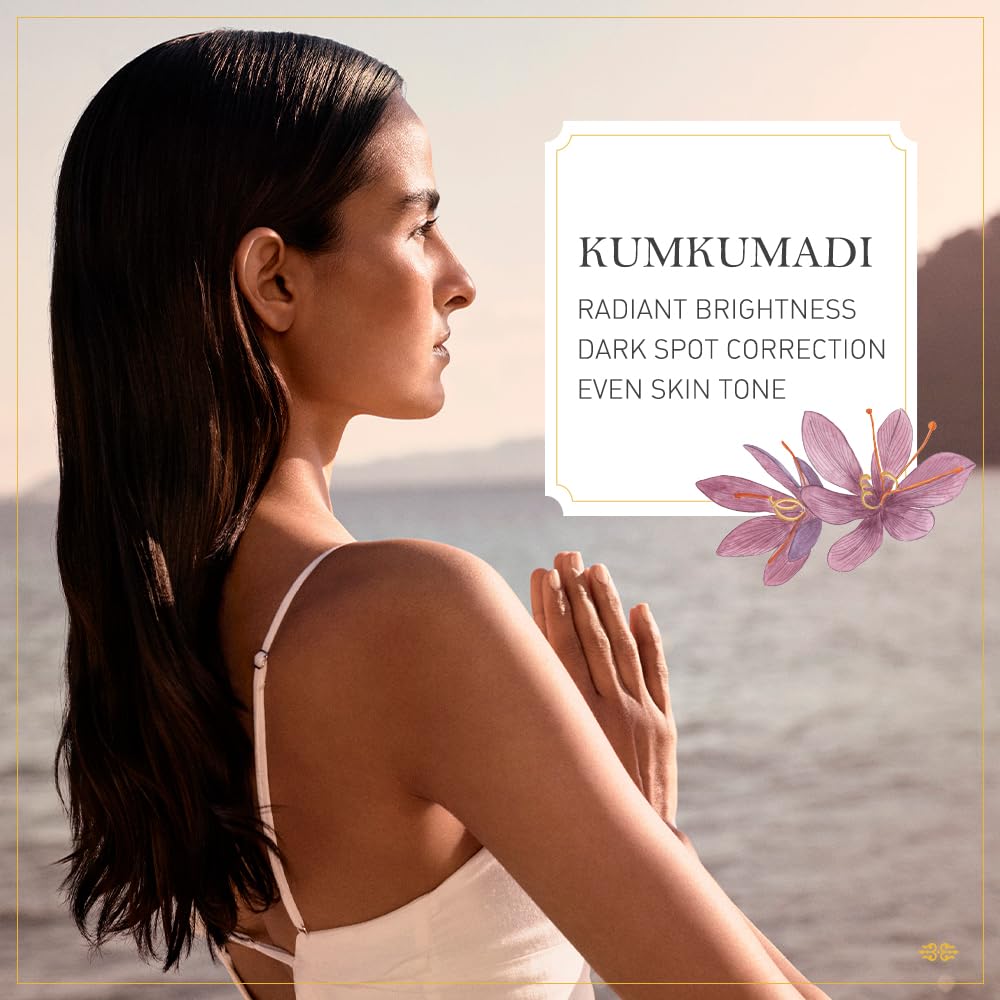In the pursuit of clear and radiant skin, many individuals battle with the remnants of past acne breakouts in the form of unsightly scars. Acne scars can be a source of frustration and self-consciousness, but the good news is that there are natural and effective ways to treat them. In this comprehensive guide, we will explore these remedies and techniques to help you achieve the flawless complexion you’ve always desired.
Understanding Acne Scars
How to Get Rid of Acne Scars Fast
Before delving into the solutions, it’s essential to understand the different types of acne scars. There are primarily two categories: atrophic and hypertrophic scars. Atrophic scars are depressions in the skin, while hypertrophic scars are raised. Each type requires a different approach to treatment.
Atrophic Scars
1. Microdermabrasion: One of the most effective treatments for atrophic scars is microdermabrasion. This non-invasive procedure involves exfoliating the top layer of your skin, stimulating collagen production, and improving the texture of your skin.
2. Chemical Peels: Chemical peels can help fade atrophic scars by removing damaged skin cells and encouraging the growth of new, healthier skin. Salicylic acid and glycolic acid peels are commonly used for this purpose.
3. Dermal Fillers: Dermal fillers can be used to elevate depressed scars and make them less noticeable. These injections fill in the hollow areas, providing a smoother appearance.
Hypertrophic Scars
4. Silicone Gel Sheeting: For raised hypertrophic scars, silicone gel sheeting is a popular choice. It helps flatten and soften the scar tissue over time.
5. Cortisone Injections: In some cases, cortisone injections can reduce the size and redness of hypertrophic scars, making them less conspicuous.
Natural Remedies for Acne Scars
While medical treatments can be effective, many people prefer natural remedies. Here are some holistic approaches to treating acne scars:
1. Aloe Vera Gel: A Natural Remedy for Acne Scars
Aloe vera is a succulent plant with a long history of being revered for its remarkable healing properties. The gel extracted from its leaves has been used for centuries to treat various skin conditions and is especially renowned for its effectiveness in addressing skin issues, including acne scars. In this article, we’ll delve into the many virtues of aloe vera gel and how it can help you achieve clear and radiant skin.
The Magic of Aloe Vera
Aloe vera, often referred to as the “plant of immortality,” is native to arid regions and has been used medicinally for over 6,000 years. Its gel, which is extracted from the fleshy leaves, contains a plethora of bioactive compounds that make it a potent healer for the skin.
Benefits for Acne Scars
Aloe vera gel is an excellent remedy for acne scars for several reasons:
1. Anti-Inflammatory Properties: Acne scars often come with inflammation. Aloe vera has natural anti-inflammatory properties that can help reduce redness and swelling, making scars less noticeable.
2. Promotes Skin Regeneration: The gel contains compounds like polysaccharides that stimulate skin cell regeneration. This is crucial for replacing scarred tissue with healthy skin.
3. Scar Lightening: Aloe vera is known to have a mild bleaching effect, which can help fade dark spots and hyperpigmentation associated with acne scars.
4. Moisturizing: Keeping the skin well-hydrated is essential for the healing process. Aloe vera is an excellent moisturizer that won’t clog pores.
How to Use Aloe Vera Gel
Using aloe vera gel to address acne scars is easy:-
1. Gel Extraction: Start by cutting a mature aloe vera leaf and extracting the gel from the inside. You can also purchase pure aloe vera gel from reputable stores.
2. Patch Test: Before applying aloe vera gel to your face, do a patch test on a small area to ensure you don’t have any adverse reactions.
3. Application: Apply a thin layer of aloe vera gel to your acne scars. Gently massage it into the skin for better absorption.
4. Leave It On: Let the gel sit on your skin for at least 30 minutes. You can leave it on overnight for better results, but wash it off in the morning.
5. Consistency: To see significant improvements, use aloe vera gel consistently. You may need several weeks of regular application to notice changes in your acne scars.
Buying Aloe Vera Gel
When purchasing aloe vera gel, ensure it’s pure and free from additives or preservatives that can dilute its effectiveness. Look for products with a high percentage of aloe vera for the best results. Alternatively, you can grow your aloe plant for a fresh and natural source of gel.
Precautions
While aloe vera is generally safe for most skin types, some individuals may be sensitive or allergic to it. Always perform a patch test before applying it to your face, and discontinue use if you experience any adverse reactions. If you have any concerns or doubts, consult with a dermatologist.
2. Honey: A Natural Remedy for Acne Scars
Honey, the golden elixir produced by bees, has been cherished for its myriad health benefits and sweet taste. Beyond its delectable flavour, honey has also been recognized for its natural healing properties, making it an excellent choice for addressing acne scars. In this article, we’ll explore the wonders of honey and how it can help you achieve clear and blemish-free skin.
The Healing Powers of Honey
Honey is a natural substance created by bees from the nectar of flowers. It contains a wide array of nutrients, antioxidants, and antimicrobial compounds that make it a versatile remedy for various skin issues. When it comes to acne scars, honey offers several advantages:
1. Antibacterial and Anti-Inflammatory Properties: Honey is a natural antibacterial agent that can help prevent infections in open acne wounds. Its anti-inflammatory properties reduce redness and swelling, making scars appear less prominent.
2. Moisturization: Honey is a natural humectant, which means it can draw moisture into your skin. This helps keep the skin well-hydrated, a critical aspect of the healing process.
3. Exfoliation: Honey contains mild alpha hydroxy acids (AHAs) that promote gentle exfoliation of dead skin cells. This can lead to a smoother complexion and gradual fading of scars.
4. Scar Lightening: Honey has natural bleaching properties that can help lighten dark spots and hyperpigmentation associated with acne scars.
Using Honey for Acne Scars
Incorporating honey into your skincare routine to address acne scars is simple and effective. Here’s how you can do it:
1. Raw Honey: Opt for raw, unprocessed honey for the best results. Processed honey may lack the beneficial compounds found in raw honey.
2. Patch Test: Before applying honey to your face, perform a patch test on a small area of your skin to ensure you’re not allergic or sensitive to it.
3. Application: Apply a thin layer of honey to your acne scars. You can also mix it with other natural ingredients like aloe vera or lemon juice for added benefits.
4. Leave It On Let the honey sit on your skin for at least 15-20 minutes, allowing it to work its magic. You can also leave it on overnight for enhanced results.
5. Consistency: To see improvements, use honey consistently. Regular application over several weeks may be required to notice significant changes in your acne scars.
Purchasing Honey
When purchasing honey for skincare, it’s important to select high-quality, organic, and raw honey. These varieties are less processed and maintain their full range of beneficial compounds. Manuka honey, in particular, is renowned for its potent antibacterial properties and is a popular choice for skincare.
Precautions
While honey is generally safe for most skin types, some individuals may be sensitive or allergic to it. Always perform a patch test before applying honey to your face, and discontinue use if you experience any adverse reactions. If you have any concerns or doubts, consult with a dermatologist.
3. Lemon Juice: A Natural Remedy for Acne Scars
Lemon juice, with its refreshing citrus aroma and tangy flavour, is not just a culinary delight but also a versatile natural remedy for a variety of skin concerns. When it comes to treating acne scars, lemon juice’s natural acidity and vitamin C content can work wonders. In this article, we’ll explore the benefits of using lemon juice to achieve clearer and more radiant skin.
The Magic of Lemon Juice
Lemon juice is derived from the fruit of the lemon tree, a citrus fruit rich in vitamin C, antioxidants, and natural acids. These properties make it a valuable ally in the quest to diminish acne scars. Here’s how lemon juice can help:
1. Exfoliation: The citric acid in lemon juice acts as a mild chemical exfoliant. It helps remove dead skin cells and promote the growth of new, healthy skin, gradually reducing the appearance of acne scars.
2. Bleaching Effect: Lemon juice’s natural bleaching properties can lighten dark spots and hyperpigmentation associated with acne scars, giving your skin a more even tone.
3. Vitamin C: The high vitamin C content in lemon juice helps boost collagen production, improving skin elasticity and promoting skin regeneration.
4. Antibacterial Properties: Lemon juice’s acidity can help control excess oil on the skin and discourage the growth of acne-causing bacteria, thus preventing new breakouts.
How to Use Lemon Juice for Acne Scars
Using lemon juice for acne scars is a straightforward process. Here’s a step-by-step guide:
1. Fresh Lemon Juice: Squeeze fresh lemon juice from a lemon. Avoid bottled lemon juice, as it may contain additives or preservatives.
2. Dilution: Lemon juice can be quite strong, so it’s best to dilute it with equal parts water. This reduces the risk of skin irritation.
3. Patch Test: Before applying lemon juice to your face, perform a patch test on a small, inconspicuous area of your skin to ensure you’re not overly sensitive.
4. Application: Dip a cotton ball or pad into the diluted lemon juice and gently apply it to your acne scars.
5. Rinse: Leave the lemon juice on your skin for about 10-15 minutes, then rinse with cool water. Ensure no lemon juice residue remains on your skin, as it can make your skin sensitive to sunlight.
6. Sun Protection: Lemon juice can make your skin more sensitive to sunlight. Therefore, it’s crucial to apply sunscreen before going outdoors.
Precautions
- While lemon juice is a natural and effective remedy for acne scars, it’s important to exercise caution:
- Skin Sensitivity: Lemon juice can cause skin irritation or dryness in some individuals. If you experience discomfort or irritation, discontinue use.
- Sun Exposure: As mentioned earlier, lemon juice can make your skin more sensitive to UV rays. Always apply sunscreen when heading outside.
- Consistency: Results may take time and consistent application. Be patient and use lemon juice regularly to see improvements in your acne scars.
4. Rosehip Seed Oil: A Natural Remedy for Acne Scars
In the quest for clear and radiant skin, nature often provides some of the most potent remedies. One such natural wonder is rosehip seed oil, a precious elixir derived from the seeds of wild rose bushes. Renowned for its skin-loving properties, rosehip seed oil has become a popular choice for addressing acne scars. In this article, we’ll explore the many benefits of rosehip seed oil and how it can help you achieve flawless and scar-free skin.
The Miracle of Rosehip Seed Oil
Rosehip seed oil is extracted from the fruit of wild rose bushes, primarily the Rosa moschata or Rosa rubiginosa varieties. It’s known for its high concentration of essential fatty acids, vitamins, and antioxidants. These remarkable compounds make rosehip seed oil a powerful tool for improving the appearance of acne scars.
1. Skin Regeneration: The oil is rich in essential fatty acids, particularly linoleic acid and linolenic acid, which play a vital role in skin regeneration. This helps to replace scarred tissue with new, healthy skin.
2. Vitamin A: Rosehip seed oil is exceptionally high in vitamin A, a key ingredient in many skincare products. Vitamin A promotes skin cell turnover and helps fade scars.
3. Vitamin C: The oil contains a substantial amount of vitamin C, an antioxidant that boosts collagen production, improving skin texture and promoting healing.
4. Anti-Inflammatory: Rosehip seed oil has natural anti-inflammatory properties that can reduce redness and swelling, making acne scars less noticeable.
Using Rosehip Seed Oil for Acne Scars
Incorporating rosehip seed oil into your skincare routine is a simple and effective process. Here’s how to do it:
1. Choose Quality Oil: Select a high-quality, organic rosehip seed oil. Ensure it’s cold-pressed and free from additives or preservatives.
2. Patch Test: Before applying rosehip seed oil to your face, perform a patch test on a small area of your skin to ensure you don’t have any adverse reactions.
3. Application: Apply a few drops of rosehip seed oil to your acne scars. Gently massage it into your skin using upward motions. You can use it both in the morning and at night.
4. Consistency: Consistent use is key to seeing improvements. It may take several weeks or even months to notice a significant difference in your acne scars.
Precautions
While rosehip seed oil is generally safe and well-tolerated, there are a few precautions to keep in mind:
Sensitivity: Some individuals may be sensitive or allergic to rosehip seed oil. Always perform a patch test before applying it to your face.
Sun Protection: Rosehip seed oil can make your skin more sensitive to sunlight. Be sure to apply sunscreen when going outside.
Quality Matters: The effectiveness of rosehip seed oil depends on its quality. Choose a reputable brand to ensure you’re using a pure and unadulterated product.
5. Green Tea: A Natural Remedy for Acne Scars
Green tea, celebrated for its numerous health benefits, is not just a soothing beverage but also a skincare ally. Its antioxidant-rich properties and soothing effects have made it a popular choice for addressing skin issues, including acne scars. In this article, we’ll explore the wonders of green tea and how it can help you achieve clear and flawless skin.
The Magic of Green Tea
Green tea is derived from the leaves of the Camellia sinensis plant and is known for its high content of polyphenols, particularly catechins. These compounds give green tea its remarkable antioxidant and anti-inflammatory properties, making it an excellent choice for skincare.
1. Antioxidant Power: Green tea is rich in antioxidants that help protect the skin from damage caused by free radicals. This can aid in the healing process of acne scars.
2. Anti-Inflammatory Effects: The anti-inflammatory properties of green tea can reduce redness and swelling associated with acne scars, making them less noticeable.
3. Skin Regeneration: The catechins in green tea promote skin regeneration, helping to replace damaged tissue with new, healthy skin.
4. Oil Control: Green tea can help control excess oil production, reducing the likelihood of future breakouts that could lead to more scars.
How to Use Green Tea for Acne Scars
Incorporating green tea into your skincare routine is simple and effective. Here’s how to do it:
1. Brew Green Tea: Start by brewing a cup of green tea. Use a high-quality organic variety for the best results. Allow the tea to cool to room temperature.
2. Topical Application: You can apply green tea topically in several ways:
Green Tea Toner: Pour cooled green tea into a spray bottle and use it as a toner. Apply to your face with a cotton ball or pad.
Green Tea Face Mask: Mix green tea with other beneficial ingredients like honey or aloe vera to create a soothing face mask. Apply the mixture to your face and leave it on for 15-20 minutes before rinsing.
Green Tea Ice Cubes: Freeze green tea into ice cubes and gently rub them on your face to soothe and reduce inflammation.
3. Consistency: To see significant improvements in your acne scars, use green tea consistently. Incorporate it into your skincare routine on a daily or weekly basis.
Precautions
Green tea is generally safe for most skin types, but some individuals may be sensitive or allergic to it. Perform a patch test before using it on your face and discontinue use if you experience any adverse reactions. If you have any concerns or doubts, consult with a dermatologist.
Lifestyle Changes for Skin Health
In addition to topical treatments, certain lifestyle changes can help improve your skin’s overall health and minimize the recurrence of acne and scarring.
1. Diet: A balanced diet rich in fruits, vegetables, and whole grains provides essential nutrients for healthy skin. Omega-3 fatty acids, found in fish and flaxseed, can help reduce inflammation.
2. Hydration: Staying well-hydrated is crucial for skin health. Water flushes out toxins and keeps your skin supple.
3. Sun Protection: Always use sunscreen to protect your skin from harmful UV rays. Sun exposure can worsen the appearance of scars.
4. Stress Management: High-stress levels can lead to breakouts. Practice stress-reduction techniques such as meditation and yoga.
Consistency is Key
Treating acne scars, whether through medical procedures or natural remedies, requires consistency. Results may not be immediate, but with patience and dedication, you can achieve smoother and clearer skin.





